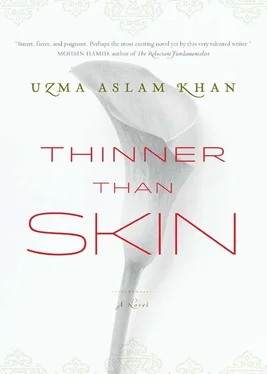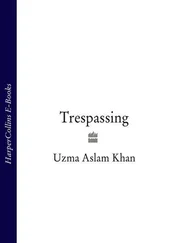A crow feather. And then the cloth.
Not one of the servants made to endure the beatings, kicks to the head, or severed pay, dared give Ghafoor away. He was as dependable as a stone come loose from a glacier. What he might do would be worse than anything they suffered now.
She was not proud of him for doing it. The inspector’s children were sent to a city hospital and their burns were crippling. The girl especially, who would marry her now? And without even a mother. The poor woman had played no part in the fine, neither the one imposed on the herders, nor the one imposed on herself, each time she opened her legs for that man whose whiskey tasted of their sweat.
Perhaps it had not been Ghafoor, she told herself, ignoring the rumors spreading through the valley faster than the fire had burned the wife. Faster, even, than Genghis Khan had burned 10,000 villages. From the ashes of the dead, she reminded herself, the King of the Universe had gifted the world its first postal service. Without that gift, she might not have survived her marriage.
He was happy for her when she got married.
He sang for her on her wedding day, the same song about Prince Saiful Maluk and Princess Badar Jamal he had sung before, outside her highland shrine. He suspected she was trying not to listen. She was angry he had not bid for her hand. Many men had come forward to offer their best cattle. Not he. Though his success as a merchant continued to grow, she had been given to Suleiman instead. Suleiman’s family gifted hers almost their entire herd, and when the gift was accepted, members of the tribe had gifted his family some of their cattle. In this way, Maryam was made up for, in part.
He had brought her a wedding gift, that, he could see now, as he waited inside her hut, was nowhere. The two carpets made by women in Tashkent: they had hung on a wall, or so he thought. Would that space there not make a good place? He looked closely above the rope bed, which was unusually disheveled, he thought, but saw no carpets.
The hut was not too clean and not too comfortable. A yurt was lavish and beautifully lit. Kazakh herders were far better off than the Gujjars of Kaghan Valley, and a small part of him regretted coming down here at all. A yurt was sacred, and, after three summers living in one, he decided this was as it should be. It ought to be a replica of the endless hemisphere of the sky. No boots should be allowed to stamp their will inside. No broken teacups should litter the floor. No clay pot should lie empty. Why was there no drinking water here? These walls were not thighs, the smoke hole was an evil eye, and there was no lattice frame, no womb.
The similarities he had found to exist between the Turkic nomads of the steppe and his own tribe suddenly began to fade. It was true they both lived according to the cycles of nature, carrying goods on their backs, sharing their assets, welcoming guests, and driving their herds from one pasture to the next so a field was never overgrazed. But if what he saw in the steppe was abundance in spite of hardship, what he saw here was ruin because of it. Did Maryam still cleanse her home with juniper branches, or had even she given up keeping this ritual alive? He could not imagine a festival taking place here anymore. He was suddenly glad for the woman beneath whom he could lie each night, the woman with the round white arms, who was waiting for him high up the Oxus River and deep in the steppe.
He had to remind himself that he had been happier for Maryam when she got married than when he did. He had to remind himself that he was here now, in the midst of this wretchedness, for a reason. He needed a plan. He believed himself close to finding it.
She was happy for him when he got rich.
He had not bid for her hand, though he could have afforded to. Instead, Suleiman’s family had placed the highest bid, and the marriage suited both their families.
In recent years, her family had increasingly succumbed to the pressure to settle more, and move less. Though the eye of the state could watch them more closely now, they had been left with little choice. They could not afford to keep ducking the eye. Living solely on cattle rearing was becoming a curse, given all the dying indigenous breeds and the restrictions on grazing in a diminishing forest. So they bought small plots of land and tried to be cultivators.
During her lifetime, her mother had vehemently opposed the change. You can harness a horse, but not a Gujjar! She watched in fury as Maryam’s brother first planted instead of herded, then kicked his ice-encrusted plot, abandoning it for work at a mine. While the contractor pocketed his pay, he took to drink. Others in her family, however, proved more successful. They became traders and merchants, or joined the army. A few, like her brother’s friend Ghafoor, even traveled the world and came home rich. They were welcomed in big shops in big towns. They wore good clothes; they owned good guns. And every now and then, though very rarely, if one went too far, he was asked to leave, and if he returned, the others looked away for as long as they could, without mentioning the crime, without mentioning the legend.
Her husband’s family, on the other hand, had refused to change, a fact which won them immediate favor with her mother. They were herders and always would be. Only with tradition came pride and dignity. Only with seasons and stars, sturdy animals, and fresh spring grass, came peace. They did not own good clothes and avoided even bad guns. But this did not mean they could not benefit from the protection of those who, like Maryam’s more cunning relatives, could knock on the front door of the forest inspector’s new house in a crisp white shirt, carrying silver spoons for his very new wife.
She remembered the horse she rode to her husband’s hut the night of her wedding and all the ghee and sugar her family distributed in celebration. The horse died soon afterward, and she did not know why, but she had cried for it. She remembered too the row of donkey carts that arrived at her wedding with guests who had been made to sit on a pile of felled trees. This was one of two favorite ways for the smugglers to transport their goods. They either sent them down the Kunhar to the big lakes of Mangla and Tarbela, where forest officials lay in wait, or they intercepted public festivities, layering the floors of carts and trucks with logs and forcing family members to pile up on them.
It was all a façade anyway, since any policeman stopping them would be an accomplice. And since those who sat on the logs were also made complicit, no one dared complain. By the time Maryam’s guests arrived, their clothes were torn and mud-stained. Some had bought them by saving for months. Others had sewn them on a shared Singer sewing machine that was older than all their children and some of their wives. But when Ghafoor started to sing about Saiful Maluk and his love for Badar Jamal, everybody started to dance and a few even dance-rolled, illustrating their journey on the logs.
She did not dance. She could tell that despite his merriment, Ghafoor’s war with the officials was far from over. She did not care. He had not bid for her hand.
On their wedding night, her husband dislodged his wooden leg. She thought of felled trees hidden in water wells. She was his water well. On subsequent nights, she learned to take it all in, the gray and yellow swirls encased in a walnut cylinder, the smoothness, even the scent; it did not frighten her the way he feared it might. How did it happen? She asked. Two bullets, from a rival Sawati Afghan tribe to the west. If not a forest inspector or landlord or policeman or smuggler, it was other herders. They said his cattle grazed on their land, though they did not own the land either. The land owned them. He bandaged the wound himself, as he had done numerous times for his horses. But he was kinder with horses. When the lesion began to ooze, after attempting to ignore it, he cleaned it so roughly he pushed both the bacteria and the bullet — the second bullet was never found — deeper inside. And then one morning, he saw the color creep beyond the blood-encrusted edge of the bandage, the shade of a terrible bruise, like buffalo hide. He lowered his head and inhaled. The stench made him weep.
Читать дальше












